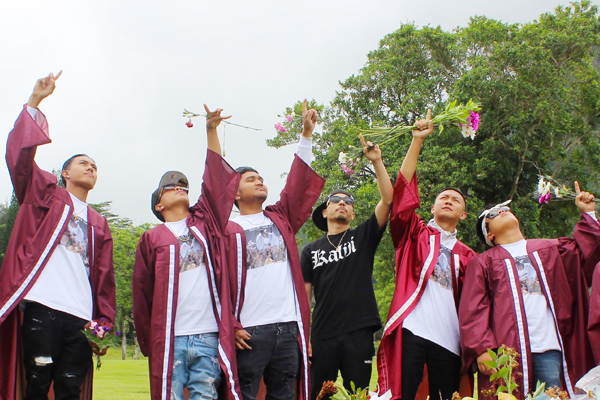Adult Friends for Youth
Empowering the Future
 Photo courtesy of Adult Friends for Youth
Photo courtesy of Adult Friends for Youth
Siutiti Takai’s phone rings around 8 pm, the teenage girl on the other end of the line is crying. She’s in another fight with her dad, who kicked her out of their home. Without missing a beat, Takai gets in her car to pick her up. The two go get something to eat, and Takai—a counselor and director of Redirectional Services at the nonprofit Adult Friends for Youth (AFY)—helps her calm down and find a safe place to spend the night.
Since 1986, AFY has been providing Hawai‘i youth who are engaging in violent behaviors, especially bullying, with positive intervention and redirection to help them succeed. Although AFY works closely with public schools to curb school violence, many interventions happen off campus, like on that night.
We like to work with kids as whole entities. Something happened to them along the way, so how do we support them to get back on track?
- Deborah Spencer-Chun, President and CEO, Adult Friends for Youth.
“We like to work with kids as whole entities,” says Deborah Spencer-Chun, AFY president and CEO. “Kids weren’t born to do these negative things. Something happened to them along the way, so how do we support them to get back on track?”
Those who are bullied and bullies themselves are at greater risk of dropping out of school. In adulthood, they often experience higher rates of anxiety and depression, and criminal convictions. Another goal of AFY is to get students back into school and reengaged in learning. Each year, AFY’s six counselors work with up to 600 youth on O‘ahu. Inequity plays a role too, with many young people lacking basic food or shelter, facing racial discrimination, or lacking support at home because of parents working multiple jobs. These stressors can lead to youth taking out their hurt as bullies to others.
October is National Bullying Prevention Month, and Spencer-Chun notes that bullying plays a critical role in the cycle of youth violence. “They started out as the bullied, and can later become the bullies,” she says.
When school officials refer a youth to the nonprofit, AFY counselors work with their peers in weekly group sessions that usually continue through graduation. Counselors meet with them at their schools or out in the community, like the beach or a movie day, and the meetings almost always involve food. “Breaking bread with them is always a good enticement to sit down and have a conversation,” she says.
For teens like the girl Takai helped, the group sessions are a place to unpack the reasons they may be acting out. “She had a really tough home life, and she was hurting,” says Takai. “We got her to share her emotions, go through the pain, and figure out what she really wanted to do with her life.”
Even though her work sometimes means answering a call late at night, Takai says being there for the teens through a difficult time is worth it. The girl she helped eventually graduated, has a better relationship with her father, and is now working and doing well. Takai adds: “Just having them be successful at the end of the day is really rewarding for me.”
Read more Stories of Impact